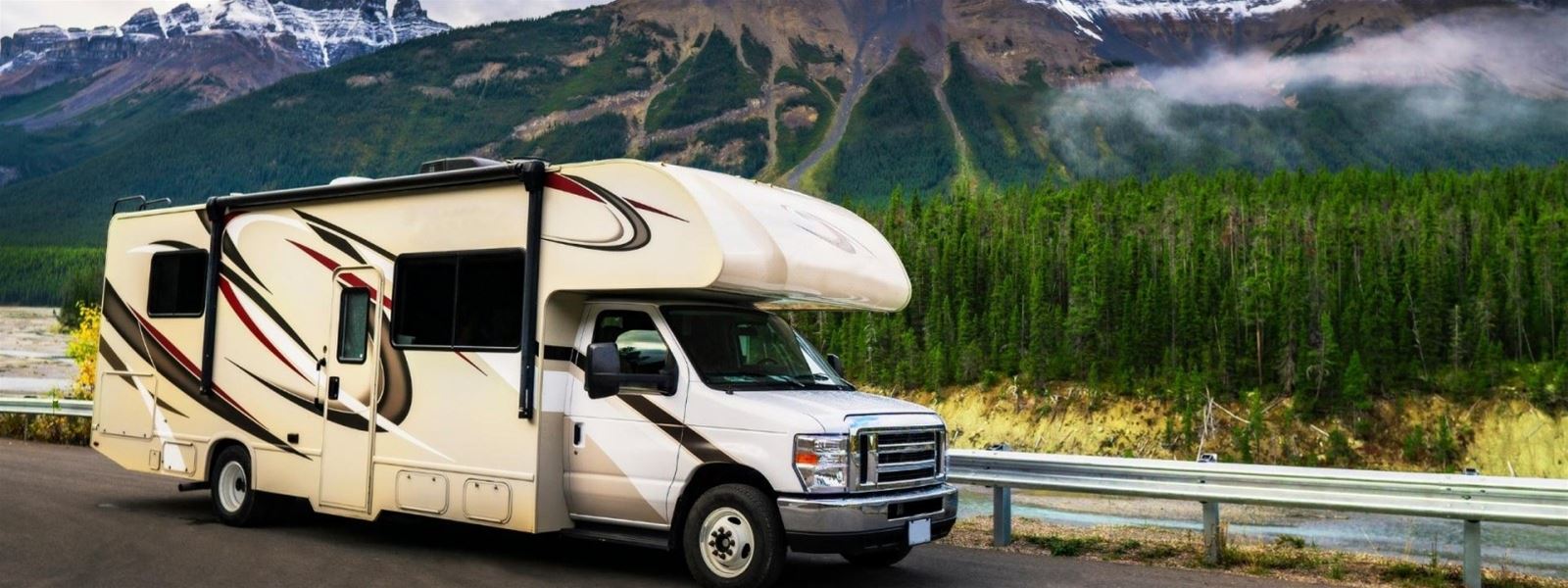 ≡
≡

Summer is in the air and recreational vehicles (RVs) are gassing up for great vacations. Preparation is essential for any successful trip, so it’s critical to have everything in order before hitting the road. This includes the right kind of RV insurance for your unique needs. Whether you’re planning a weekend getaway or an extended out-of-state stay, make sure your family’s RV is covered in case of an emergency. Here we explore RV insurance in detail to help you make the best decision possible.
Many people are familiar with automobile insurance because most states require it. In fact, there are only two states (Virginia and New Hampshire) where car insurance isn’t mandatory. While RVs can sometimes be added to a current automotive policy, this may not provide enough coverage for your needs.
Insurance companies generally offer various standalone RV insurance policies. These policies provide coverage for things like collisions, personal liabilities, medical payments, and replacement costs. RV insurance policies may include uninsured motorist coverage and roadside assistance, as well. Some also offer the choice of vacation liability coverage. This insures you for injuries or damages occurring within or around the RV during short trips.
Unfortunately, RV insurance doesn’t cover everything. Most policies rarely include coverage for general wear and tear from everyday use. They also may not cover environmental damage from mold, rot, fungus, floods, and earthquakes. Keep in mind that towed campers may not need insurance unless a lender requires it. Towable RVs like 5th wheels, trailers, and pop-up campers fall under the policy that protects the towing vehicle.
Short trips are one thing, but long vacations are another matter entirely. The longer the trip, the more risk an RV and its occupants assume. This may seem straightforward, however the differences between part-time and full-time RV insurance can cause some confusion.
Insurance companies often base their policies on assumed liability needs. More liability generally means higher insurance rates and the need for added coverage. Depending on how much time you plan to spend on the road, either part-time or full-time RV insurance will apply.
Recreational or part-time RV insurance usually applies to drivers who spend less than 150 days on the road each year. By contrast, full time RV insurance is for those who use their motorhome year-round as a long-term residence. Full-time coverage generally covers what part-time policies do, but at higher limits and with optional additions.
Part-time RV insurance often includes general liability protection, as well as physical damage and personal effects coverage. This serves to insure not only the vehicle itself, but anything valuable contained within it, from clothing to electronics. Full-time coverage tends to resemble a traditional homeowners insurance policy given that the RV functions much like a second home. In this case, policyholders may add coverage for roadside assistance, uninsured property or injury, medical payments, and emergency expenses.
It’s important to have enough coverage to protect your family and its assets. Traveling can be dangerous, especially for extended periods of time on the open road. Knowing you’re insured will give you greater peace of mind during your next vacation.
Make sure you understand your home state’s laws and those of any state you plan to visit. If your RV is self-propelled, you need to hold a minimum amount of liability coverage. However, state minimum limits are rarely sufficient to cover major damage to new vehicles or accidents involving multiple passengers. Having only bare minimum liability coverage puts you at risk of significant losses to your RV and savings.
We recommend at least a part-time insurance policy for all RVs. This is a fantastic way to protect your family during seasonal vacations. However, if you wish to travel for more than five months out of the year, a full-time policy is preferable. This is also the way to go if you plan to use your RV as a permanent residence. If you recently bought a newer RV, be sure your policy includes some form of replacement coverage. The last thing you want is to lose your investment due to an accident.
Deciding which policy is right for you doesn’t have to be difficult. If you’re curious about RV insurance, feel free to give us a call today. Our agents can help you understand various state requirements and best practices. We’ll gladly discuss your options, provide a free quote, and prepare you for the road ahead.
